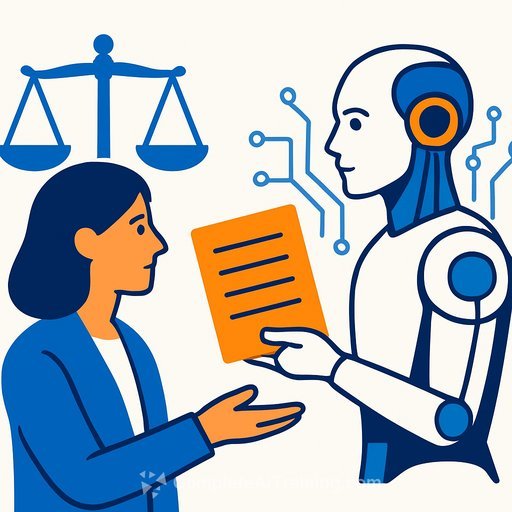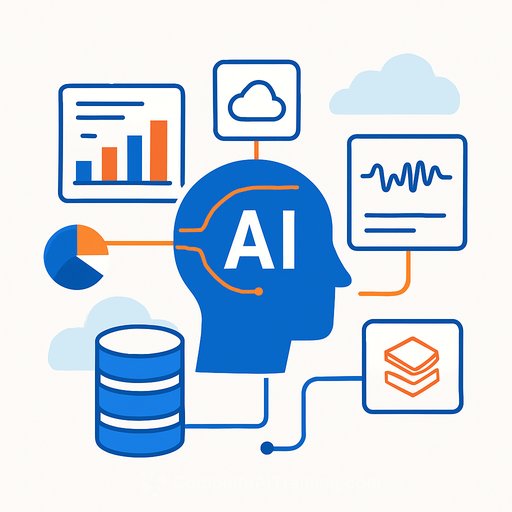The UK’s AI Landscape: The ICO’s Role in Balancing AI Development and Data Protection
Artificial intelligence (AI) is becoming an integral part of industries and daily life, making the role of regulators like the Information Commissioner’s Office (ICO) essential. The ICO acts as the UK’s independent data protection authority, overseeing AI’s impact across public and private sectors. Their approach manages the fine line between fostering innovation and ensuring personal data is handled responsibly.
The ICO’s Role in UK AI Regulation
The ICO regulates personal data processing throughout the AI lifecycle—from data collection to model training and deployment. Their work spans diverse applications, from fraud detection in government to personalised advertising on social media. This broad remit involves proactive collaboration with industry and public bodies as well as enforcement against serious breaches.
Engagement includes supporting responsible AI development through innovation services and raising public awareness via research and civil society outreach. Enforcement actions, like the 2023 notice against Snap for an inadequate Data Protection Impact Assessment (DPIA), underline their commitment to accountability.
Balancing AI Innovation and Data Protection
AI can improve efficiency, reduce workloads, and speed up decision-making by automating processes and detecting patterns. But success depends on solving real problems rather than chasing novelty. The UK benefits from top AI talent and a multidisciplinary approach that blends technical know-how with social science and economics insights.
Strong data protection is not a hurdle—it’s key to building trust. Just as seatbelts allowed cars to become safe and widespread, clear data protection frameworks enable AI to develop sustainably and gain public confidence.
Assessing and Mitigating AI Risks
AI covers a wide range of models with different complexities and data needs, so risks vary by application. For high-risk cases, the ICO requires organisations to conduct DPIAs detailing potential harms and mitigation steps. The ICO reviews these assessments to judge if risks are properly managed. Failure to comply can trigger regulatory action.
Emerging Technologies Supporting Data Protection
Technologies like federated learning and blockchain offer promising ways to enhance data privacy and security. Federated learning trains AI models without centralising raw data, reducing exposure to breaches. Combined with other privacy tools, it limits attackers' ability to extract sensitive information.
Blockchain can improve data integrity and accountability through tamper-evident records but requires careful design to avoid unnecessary data exposure. The ICO plans to release detailed guidance on blockchain soon, which will be valuable for developers and data officers.
Ethical Concerns and the ICO’s Strategic Approach
Ethics in AI are embedded in data protection principles such as lawfulness, fairness, transparency, purpose limitation, data minimisation, accuracy, storage limitation, security, and accountability. Organisations must integrate these principles by default when designing AI systems.
The ICO’s AI and Biometrics Strategy highlights priority areas:
- Scrutiny of automated decision-making in government and recruitment
- Oversight of generative AI foundation model training
- Regulation of facial recognition use in law enforcement
- Development of a statutory code of practice on AI and automated decision-making
This strategy clarifies expectations for innovators while protecting individual rights.
Keeping Up with AI Developments
The UK government’s AI Opportunities Plan focuses on strengthening regulators’ capacity to supervise AI technologies. Building expertise and resources across regulatory bodies is essential to keep pace with emerging AI capabilities and their implications for data protection.
International Collaboration on AI Regulation
AI systems and supply chains are global, so the ICO works with international counterparts through groups like the G7, OECD, and the Global Privacy Assembly. The UK closely monitors the EU AI Act but prefers empowering sector regulators over creating a single AI watchdog, maintaining flexibility in its approach.
The Data (Use and Access) Act and Its Impact
This Act mandates the ICO to develop a statutory Code of Practice on AI and automated decision-making. Building on existing guidance, the code will provide clearer rules on research uses, accountability in complex supply chains, and expectations for generative AI. This will help organisations navigate compliance with confidence.
Positioning the UK as a Global AI Leader
The UK already leads in AI regulation discussions. The Digital Regulation Cooperation Forum, which includes the ICO and other regulators, has become a model internationally. The ICO was also the first data protection authority to clarify rules on generative AI.
Challenges ahead include recruiting and retaining AI experts, providing clear regulatory guidance amid fast technical and legislative changes, and scaling resources to meet AI adoption’s growth.
For IT professionals and developers interested in expanding their AI expertise while aligning with data protection standards, exploring specialized training courses can be valuable. Resources like Complete AI Training’s latest AI courses offer practical skills for working responsibly with AI technologies.
Your membership also unlocks:





